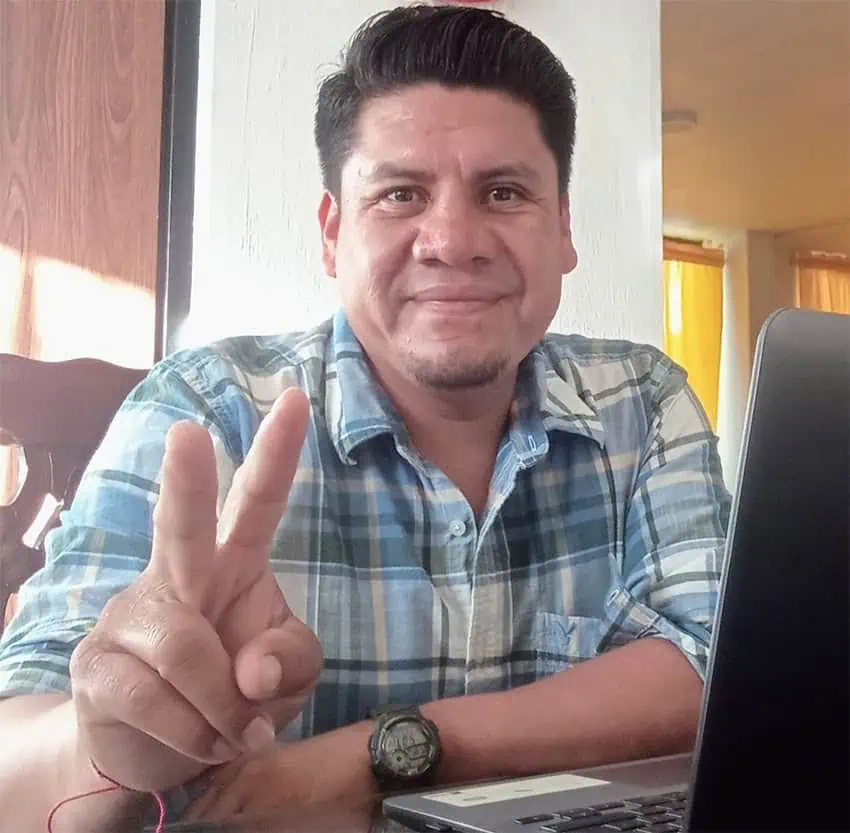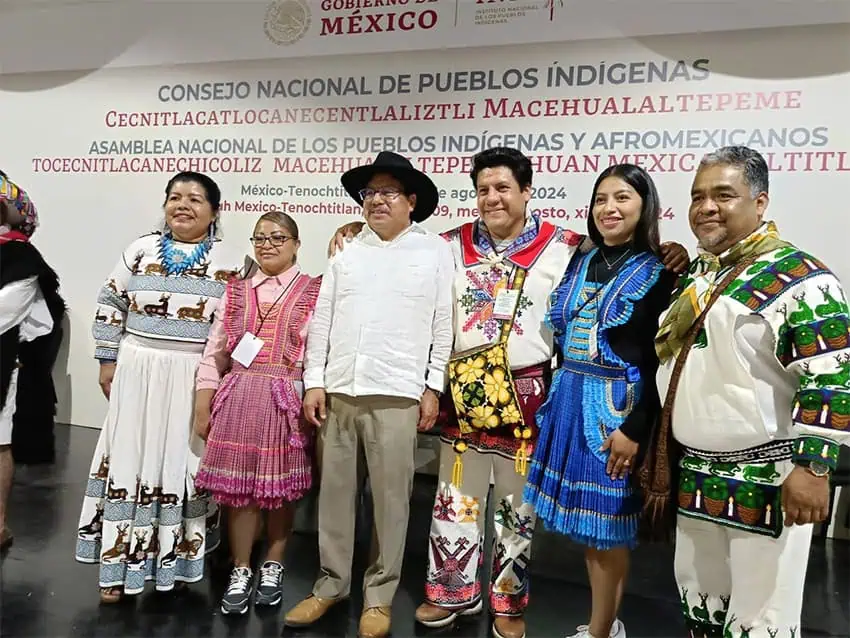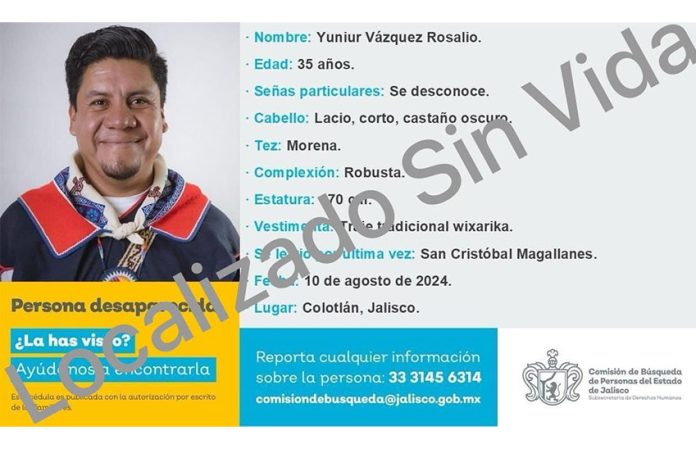The Indigenous Wixárika community in northern Jalisco is raising doubts about the official explanation that a vehicle accident killed Yuniur Vázquez Rosalío, the recently elected mayor of Bolaños, and his campaign manager, Antonio Carrillo González.
The two men were both prominent figures among the Wixárika (also known as the Huichol). They were found dead inside a wrecked pickup truck in a ravine off the Villa Guerrero–Bolaños highway on Aug. 13. The pair had already been reported missing, having not been seen since three days earlier.

According to the Jalisco Institute of Forensic Sciences, the deaths resulted from third-degree head trauma sustained in the crash.
Authorities initially suggested the incident was an accident, but the Wixárika community is skeptical. They live in a region so plagued by cartel crime and violence that a group of Indigenous women earlier this year issued a video plea asking for one cartel to do away with a ruthless member of another cartel.
Given Vázquez and Carrillo’s experience with the area’s risks, many have been questioning whether the deaths were truly accidental.
Vázquez, 35, had recently won the mayoral election as a candidate of the local Hagamos party, part of a multi-party coalition that also included Morena. He was the first to do so under a political banner other than the Institutional Revolutionary Party (PRI) or the National Action Party (PAN).

A lawyer and longtime activist, Vázquez was deeply involved in defending Indigenous rights and promoting autonomy for Wixárika communities. On Saturday, he participated in a National Assembly of Indigenous Peoples in Mexico City. He was to be sworn in as mayor on Oct. 1.
Two years ago, area leaders received a visit from President Andrés Manuel López Obrador, during which he promised that the federal government would develop a “comprehensive” security plan for the mountainous region that encompasses parts of Nayarit, Jalisco, Durango and Zacatecas — where the Wixárika largely live.
Currently, the Jalisco Prosecutor’s Office continues to investigate the alleged accident, but Indigenous leaders are demanding a more thorough and transparent inquiry. They argue that the deaths are part of a larger pattern of violence against Indigenous leaders in Mexico.
In a statement, the Wixárika community — whose culture in the Sierra Madre Occidental has also been threatened by mining and peyote seekers — called for justice and urged that this case not be forgotten.
“This tragedy highlights the cruel reality that our Indigenous peoples face in Mexico: a system that, instead of protecting us, abandons us to violence and insecurity,” it read.
In Jalisco, the Wixárika community mainly lives in remote, small mountain towns such as Bolaños. They are known for their vibrant culture, which includes shamanistic traditions, intricate beadwork and vibrant yarn paintings.
With reports from La Jornada, Infobae, El Occidental and Fábrica de Periodismo
